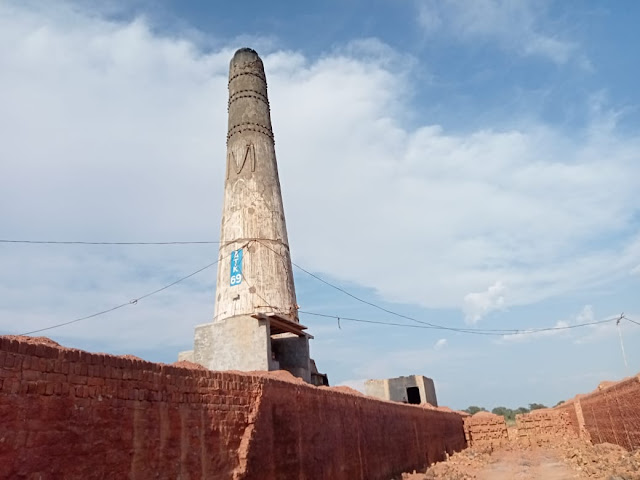Punjab’s Brickworks Industry: Challenges and Growth
Punjab, the heartland of Pakistan, is known for its rich agricultural lands, thriving cities, and industrial sectors. Among its many industries, the brickworks sector plays a crucial role in the region’s economy. This industry, which provides essential building materials for construction, contributes significantly to the province’s employment and economic growth. However, it faces a series of challenges that threaten its sustainability and future growth.
Economic Importance of Brickworks
The brickmaking industry in Punjab is one of the largest informal sectors, employing millions of workers, including men, women, and children. Bricks are a fundamental material used in the construction of homes, commercial buildings, infrastructure projects, and more. The vast majority of the brick kilns in Punjab are concentrated in cities like Lahore, Faisalabad, Rawalpindi, and Multan, making the region a key player in Pakistan’s overall construction industry.
The industry is driven by the growing demand for housing, urbanization, and infrastructure development, particularly as cities expand and the population increases. Punjab’s expanding real estate and construction sectors have created an ever-present need for bricks, which has helped the brickworks industry to thrive. Despite its growth, the sector is facing several obstacles that impact its long-term viability.
Environmental and Health Concerns
One of the most pressing issues facing Punjab’s brickworks industry is the environmental and health impact of traditional brick kilns. The majority of kilns in the region still operate on outdated, inefficient technology that relies on coal or firewood as fuel. This method not only contributes to significant air pollution but also affects the health of workers and nearby communities. The use of low-grade coal in kilns has been linked to increased respiratory illnesses, particularly in workers who spend long hours in the smoke-filled environments of these kilns.
The environmental damage doesn’t stop at air pollution. Brick kilns also consume large amounts of firewood, leading to deforestation in nearby areas. The overuse of natural resources and poor waste management practices further exacerbate environmental degradation, raising concerns about the sustainability of the industry.
The brickworks industry is a vital part of Punjab’s economy, providing essential construction materials for the growing infrastructure needs of the region. As one of Pakistan's most industrialized provinces, Punjab is home to a vast network of brick kilns, contributing significantly to the construction and housing sectors. However, while this industry has shown substantial growth over the years, it faces a range of challenges that threaten its sustainability and future expansion.
The Importance of Brickworks in Punjab
Punjab’s brickworks are critical to the construction of homes, roads, schools, and commercial buildings, all of which are in high demand due to rapid urbanization and infrastructure development in the region. The industry employs a large portion of the workforce, with thousands of workers engaged in the manual labor of producing bricks. These bricks, mostly made from clay and mud, are fired in kilns to harden them for use in construction.
According to industry estimates, over 20,000 brick kilns operate in Punjab, with a large number of them in the central and southern parts of the province. The demand for bricks has spiked in recent years due to rising construction activity, especially in cities like Lahore, Rawalpindi, and Multan.
Challenges Facing the Brickworks Industry
Despite its significance, the brickworks industry in Punjab is grappling with several serious challenges.
1. Environmental Impact
One of the biggest issues facing brick kilns is their environmental footprint. Traditional brick kilns are notorious for their heavy use of coal and wood as fuel sources, leading to high emissions of carbon dioxide, sulfur dioxide, and other harmful pollutants. This not only contributes to air pollution in nearby areas but also adds to the broader climate change challenges Pakistan is facing.
The government has taken some steps to address these concerns by promoting environmentally friendly kiln technologies, such as Zig-Zag kilns, which are more efficient and produce fewer emissions. However, the adoption of these technologies remains slow due to high initial costs and a lack of proper awareness among kiln owners.
2. Labor Conditions and Exploitation
The brickworks industry also faces widespread issues of exploitation of labor. Many of the workers in this sector, especially those involved in brick-making, come from poor rural backgrounds and often work in inhumane conditions. Laborers are typically paid very low wages and work long hours under harsh weather conditions, often without access to basic amenities or job security.
This exploitative system has led to calls from human rights organizations and labor unions for the improvement of working conditions and the establishment of minimum wage standards. There is also a push for better child labor regulations as many children are employed in brick kilns, despite national laws prohibiting such practices.
3. Rising Costs and Competition
As energy prices rise and raw material costs increase, many brick kiln owners face financial strain. The cost of coal, which remains a primary energy source for most kilns, has surged in recent years, significantly raising production costs. Moreover, the sector is increasingly facing competition from cheaper imported materials, making it harder for local brick manufacturers to maintain their market share.
Path Forward: Growth and Sustainability
While the challenges are significant, there are also numerous opportunities for growth and sustainability in Punjab’s brickworks industry. Moving towards more eco-friendly technologies, implementing fair labor practices, and improving the efficiency of operations can ensure the long-term viability of the industry.
The government’s role is critical in providing incentives for modernizing kilns and ensuring that environmental regulations are enforced. Additionally, better access to finance for brick kiln owners and education on new technologies can further boost the sector's resilience.
In conclusion, while Punjab’s brickworks industry faces serious challenges, it remains a cornerstone of the province's construction sector. With the right reforms, support, and a focus on sustainability, the industry can continue to grow while contributing to the region’s development in a more responsible and eco-friendly manner.



.jpeg)

.jpeg)



0 Comments